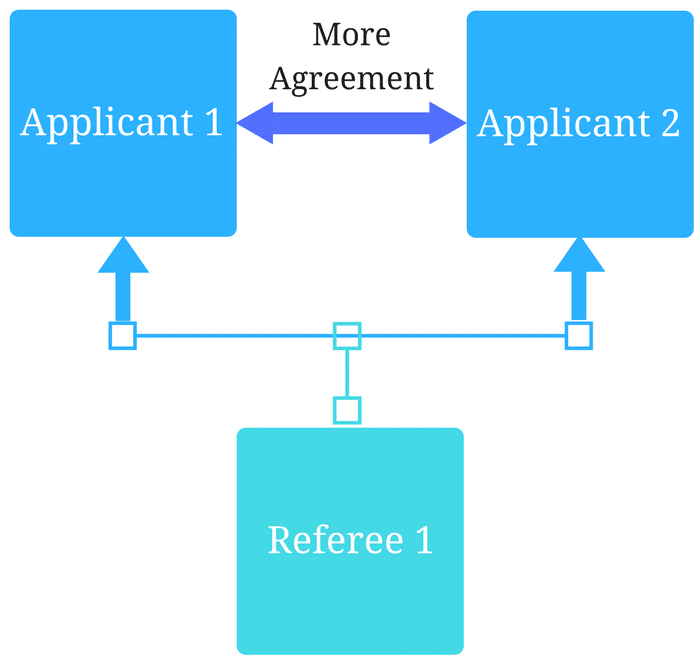The Evolution of Holistic Admissions: From Concept to Practice

February 29, 2024
Holistic admission is a nice buzzword, but what exactly does it mean?
A holistic admissions process requires higher education institutions to look beyond academics and consider the whole applicant. Holistic admissions aim to understand the person behind the application. What are their values, lived experiences, and people-centred skills?
This week on the Holistic Success Show, we welcome Dr. Kristen Goodell, Associate Dean of Admission at Boston University School of Medicine, to speak to her experience in holistic admissions and give us a better idea of what holistic admissions looks like in practice.
What does holistic admissions look like?
Unsurprisingly, different medical schools interpret holistic admissions differently. Boston University School of Medicine takes a comprehensive approach that aims to understand each applicant’s unique qualities and ensure a well-rounded student body.
What does this involve? It begins by considering various aspects of the application and avoiding a uniform class, not just in the socioeconomic aspect but also in terms of achievements. The goal for Boston University School of Medicine is to create a balanced class with individuals who bring varied perspectives and experiences to the table. This approach extends to their curriculum, where they ensure a mix of students with different levels of academic performance and experiences. The overarching aim is to support each student’s goals and create a dynamic learning environment.
What drives the move to holistic admissions?
There is an increasing acknowledgment of the importance of various perspectives in medical school, encompassing a range of experiences and viewpoints. With the inclusion of individuals from a variety of backgrounds on admissions committees, there is a growing emphasis on recognizing the value of applicants’ backgrounds.
Studies indicate that patients feel more open with physicians who comprehend their cultural contexts, resulting in heightened satisfaction and improved adherence to treatment regimens. Personal accounts from students further underscore the significance of varied perspectives in medical training. This underscores the ongoing necessity for admissions committees to maintain their focus on fostering a range of perspectives among students entering the medical profession.
How can admissions start their holistic review journey?
The beginning of a journey to holistic admissions is a shift in mindset. Holistic admissions is a deeply human process that involves understanding each applicant individually, rather than just focusing on numbers and percentages.
Admissions of any sort will always be a moving target, and holistic admissions is no exception. The process requires ongoing evaluation and adaptation. Expected changes to the curriculum need to be considered in the same space as unexpected changes arise, such as COVID-19. Smaller, yearly adjustments based on past experiences are part of continuous quality improvement.
What are some barriers to adopting holistic admissions?
The main challenge to adopting holistic admissions widely is the financial and time burden it brings. The key to overcoming this challenge lies in the people involved in admissions. While they need to be compensated, many participate because they genuinely care about widening pathways for candidates. It’s important to invite individuals who have benefited from this approach to medical education to join the process, as this will support your institution’s commitment to a wider range of perspectives.
Another important consideration is aligning admissions with the school’s mission. When students, staff, and admissions share the same mission, it creates a strong sense of community. Students who show intellectual curiosity and passion that align with the school’s mission will be poised to succeed within their specific program.
The future of holistic admissions
One key topic to consider is the impact of AI on medical schools – and higher education in general. The utilization of large language models in admissions will continue to rise, though it’s not fully implemented yet. AI presents schools with the chance to concentrate on particular criteria without the need for extensive manual application review. While human involvement remains crucial in holistic admissions, AI can streamline initial sorting tasks, offering potential benefits. Although widespread adoption won’t happen immediately, it’s expected to grow gradually over time.
Listen to the full Holistic Success Show episode with Dr. Kristen Goodell!
Related Articles

How interviews could be misleading your admissions...
Most schools consider the interview an important portion of their admissions process, hence a considerable…
Reference letters in academic admissions: useful o...
Because of the lack of innovation, there are often few opportunities to examine current legacy…
